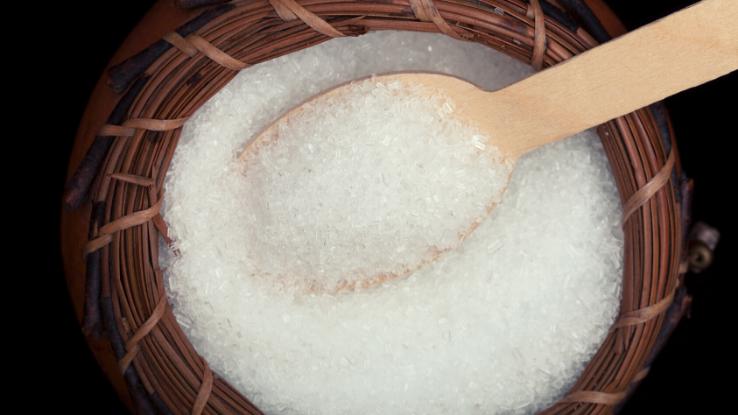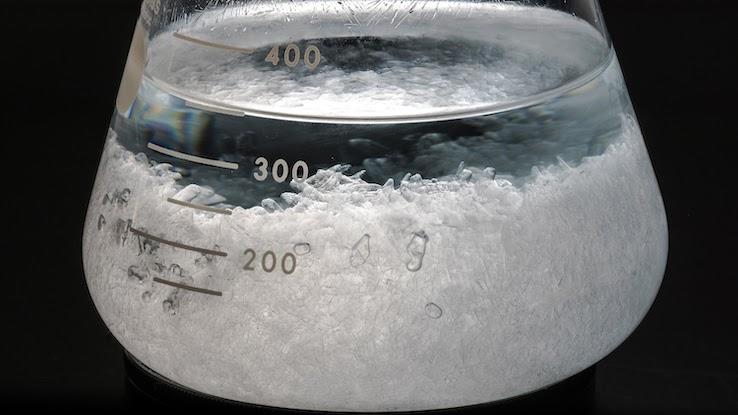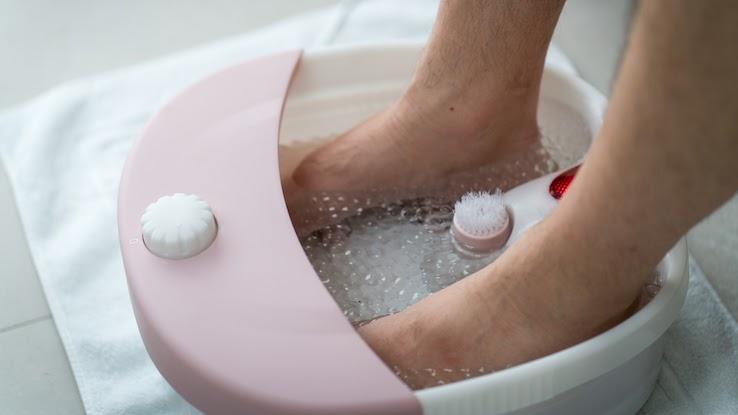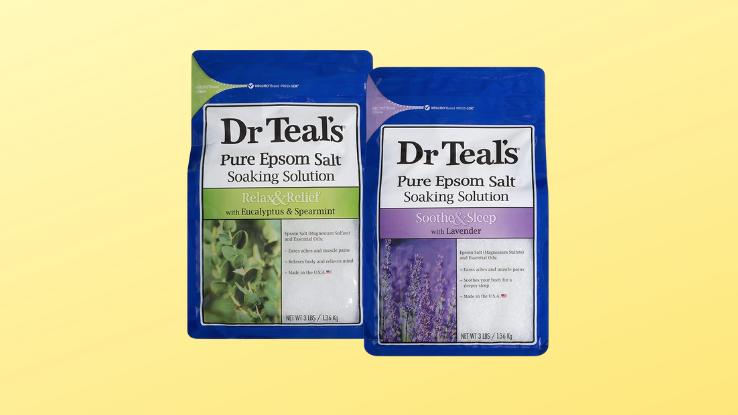
Anyone who has experienced some soreness from a workout or a bad night’s sleep can tell you what Epsom salt is — and how much it helped. It’s not exactly table salt, even though some people dissolve it in water to drink. More often, it’s used in baths and foot soaks because it helps relieve aches and pains, from muscle stiffness to migraines. Want to know more about this popular remedy? We’ve got all your Epsom salt questions covered.
What Is Epsom Salt?
As mentioned, Epsom salt is not used to season your fries. It was first discovered in 17th century England and, shortly after, named for the bitter saline spring at Epsom in Surrey. So, what is it? Also known as magnesium sulfate, Epsom salt is a naturally occurring pure mineral compound that’s easily absorbed into the skin. Magnesium has been shown to reduce inflammation, aid muscle and nerve function, and prevent the hardening of arteries. Meanwhile, sulfate helps us absorb nutrients, flush toxins, and relieve debilitating migraine pain.

What Are the Health Benefits of Epsom Salt?
There are many great benefits to using Epsom salt regularly. Magnesium levels often drop when you’re stressed, so Epsom salt is thought to be a great stress reliever and helps promote better sleep (and a better mood too!). Since magnesium and sulfate are believed to get rid of fluid in your system, if they are taken orally, they could help to regulate your bowels, relieve constipation, and flatten your stomach. However, health experts state that you should consult your doctor before trying that.

For athletes or other frequent exercisers, Epsom salt can help relieve muscle soreness and provide cramp relief, which is important for recovery and performance. Some doctors might even suggest magnesium supplements to professional athletes.
Additionally, Epsom salt is used in soaks for tired and swollen feet. These soaks ease pain, reduce foot odor, and help draw out any infections from the feet and ingrown toenails. In combination with other treatments, it may help people recover from seasonal colds or flu. That is, Epsom salt is said to spur a process called vasodilation, which increases white blood cell production, thus helping the body fight illnesses. As an added bonus, Epsom salt also exfoliates and moisturizes your skin.
How Is Epsom Salt Used?
Epsom salt is typically added to baths so that folks with muscle aches can soak. How does it work? Well, when the compound dissolves, magnesium and sulfate ions are released. The Epsom Salt Council recommends dissolving 2 cups of Epsom salt in 15 gallons of water — the size of a standard-sized tub — and soaking for 12 minutes.

The compound can also be applied to your skin as an exfoliating face cleaner, which comes in handy if you’re looking to deal with nasty blackheads. (Just add a few drops of iodine and you’re set!) Additionally, Epsom salt can also be taken orally as a magnesium supplement or laxative. However, you should consult with your doctor before taking any oral supplements.
In addition to helping your body relax and recover, Epsom salt also has some practical household uses. For starters, it can be used to clean bathroom tiles (in combination with liquid dish detergent), and it’s great for tackling detergent buildup on washing machines. Another interesting way you can use Epsom salt? In your fertilizer. Seriously! Gardeners going organic will be happy to know that Epsom salt enhances fertilizer and revitalizes the soil.
Are There Any Potential Side Effects of Epsom Salt?
So, are there any side effects to using the popular remedy? Epsom salt is generally safe when used in a bath or foot soak. However, folks with sensitive skin may experience a reaction. If it’s your first time using Epsom salt, test some of it on your arm before dunking yourself into the bath. If you have broken skin, avoid Epsom salt soaks. And if you’re experiencing itchiness, skin affection, or other allergic reactions, stop using the product.

When it comes to Epsom salt, taking it orally can raise more issues. For starters, it has a laxative effect, so consuming it in high doses can result in an upset stomach, bloating and diarrhea. If you don’t want it to act as a laxative, be sure to take it with plenty of water — and always consult your doctor first for proper dosage amounts. People who have taken too much Epsom salt have dealt with nausea, headaches, lightheadedness, and flushed skin, all due to an overdose of magnesium. In severe cases, a magnesium overdose can even induce comas, paralysis, cardiac events or death.
Where Can You Purchase Epsom Salt?
Epsom salt is typically available in grocery stores, pharmacies, and online. No matter the store or brand, you’ll want to make sure the Epsom salt you pick is high quality. Do some research before settling on a product, though you can always rely on big-name brands like Dr. Teal’s (pictured here). The Epsom Salt Council recommends only buying packages labeled with “USP” and “drug facts.” Why’s that? These details flag that the product has been manufactured, tested, and certified to meet the Food and Drug Administration (FDA) and the United States Pharmacopeia (USP)’s regulatory standards, making it safe for human use.

Resource Links:
- “Health benefits of Epsom salt baths” via Epsom Salt Council
- “Can Epsom Salt Baths Really Help With Recovery?” via Runner’s World
- “Magnesium Sulfate” via Mayo Clinic
Advertiser Disclosure: When you purchase through links on our site, we may earn an affiliate commission.





